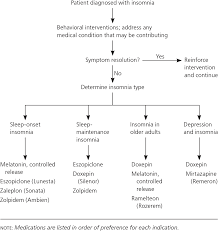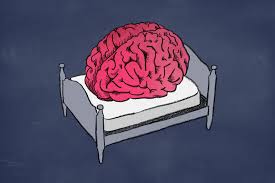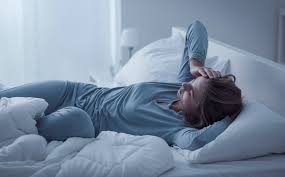The Best Treatment for Insomnia in Older Adults
Insomnia is a common sleep disorder that affects many older adults. Difficulty falling asleep, staying asleep, or waking up too early can significantly impact their quality of life and overall health. While there are various treatment options available, it’s essential to find the most effective approach for managing insomnia in older individuals.
Cognitive Behavioral Therapy for Insomnia (CBT-I)
CBT-I is considered one of the most effective non-pharmacological treatments for insomnia. This therapy focuses on changing behaviors and thoughts that contribute to sleep problems. In older adults, CBT-I can help establish a regular sleep schedule, improve sleep hygiene practices, and address underlying anxiety or stress that may be disrupting their sleep.
Medications
In some cases, healthcare providers may prescribe medications to help older adults manage their insomnia. However, it’s essential to use these medications cautiously due to potential side effects and interactions with other medications. Sedative-hypnotic drugs should be used as a short-term solution and under close supervision by a healthcare professional.
Lifestyle Changes
Simple lifestyle modifications can also play a significant role in improving sleep quality for older adults with insomnia. Encouraging regular physical activity during the day, limiting caffeine intake in the afternoon and evening, creating a comfortable sleep environment, and establishing a relaxing bedtime routine can all contribute to better sleep habits.
Addressing Underlying Health Conditions
Insomnia in older adults can sometimes be linked to underlying health conditions such as chronic pain, depression, or sleep apnea. Treating these conditions effectively can help alleviate insomnia symptoms and improve overall sleep quality.
Alternative Therapies
In addition to traditional treatments, some older adults may benefit from alternative therapies such as acupuncture, mindfulness meditation, or relaxation techniques like progressive muscle relaxation or guided imagery. These approaches can help reduce stress and promote relaxation before bedtime.
It’s important for older adults experiencing insomnia to consult with their healthcare provider to determine the best course of treatment based on their individual needs and health status. By addressing insomnia effectively, older individuals can enjoy better quality sleep and improved overall well-being.
Effective Strategies and Treatments for Insomnia in Older Adults: A Comprehensive Guide to Improving Sleep Quality
- What are the most effective treatments for insomnia in older adults?
- Is cognitive behavioral therapy for insomnia (CBT-I) recommended for older individuals?
- What medications are commonly prescribed to treat insomnia in older adults?
- How can lifestyle changes help improve sleep quality in older adults with insomnia?
- Are there any alternative therapies that can be beneficial for treating insomnia in older adults?
- Should underlying health conditions be addressed when treating insomnia in older individuals?
What are the most effective treatments for insomnia in older adults?
When seeking effective treatments for insomnia in older adults, a multifaceted approach is often recommended. Cognitive Behavioral Therapy for Insomnia (CBT-I) stands out as a highly effective non-pharmacological treatment option, focusing on behavioral changes and cognitive strategies to improve sleep patterns. Additionally, medications may be prescribed cautiously for short-term relief, while emphasizing the importance of lifestyle modifications such as regular exercise, caffeine reduction, and creating a conducive sleep environment. Addressing underlying health conditions and exploring alternative therapies like acupuncture or mindfulness meditation can also play a crucial role in managing insomnia in older adults effectively. Consulting with healthcare providers to tailor a personalized treatment plan based on individual needs is key to promoting better sleep quality and overall well-being in this demographic.
Is cognitive behavioral therapy for insomnia (CBT-I) recommended for older individuals?
Cognitive Behavioral Therapy for Insomnia (CBT-I) is highly recommended for older individuals struggling with sleep disturbances. This structured therapy approach focuses on changing behaviors and thoughts that contribute to insomnia, making it an effective non-pharmacological treatment option. CBT-I helps older adults establish healthy sleep habits, address underlying factors affecting their sleep, and improve their overall quality of rest. Research has shown that CBT-I can be particularly beneficial for older individuals by promoting sustainable changes in sleep patterns and enhancing their well-being without the potential risks associated with medications. Consulting with a healthcare provider or a sleep specialist can help determine if CBT-I is the right treatment approach for managing insomnia in older adults.
What medications are commonly prescribed to treat insomnia in older adults?
When it comes to treating insomnia in older adults, healthcare providers may commonly prescribe medications such as sedative-hypnotics, benzodiazepines, and non-benzodiazepine hypnotics. Sedative-hypnotic drugs like zolpidem (Ambien) and eszopiclone (Lunesta) are often used for short-term management of insomnia. Benzodiazepines such as temazepam (Restoril) may also be prescribed but are typically reserved for severe cases due to their potential for dependence and side effects. Non-benzodiazepine hypnotics like zaleplon (Sonata) and ramelteon (Rozerem) are alternatives that can help improve sleep without the same risks of dependency. It’s crucial for healthcare providers to carefully evaluate each individual’s health status and consider potential interactions with other medications before prescribing any sleep aids to older adults.
How can lifestyle changes help improve sleep quality in older adults with insomnia?
Lifestyle changes play a crucial role in improving sleep quality for older adults with insomnia. By adopting healthy habits and routines, older individuals can create an environment conducive to better sleep. Simple changes such as establishing a consistent sleep schedule, creating a relaxing bedtime routine, avoiding stimulants like caffeine in the evening, and engaging in regular physical activity during the day can help regulate the body’s internal clock and promote restful sleep. Additionally, optimizing the sleep environment by ensuring a comfortable mattress and pillows, minimizing noise and light disturbances, and maintaining a cool room temperature can further enhance sleep quality. These lifestyle modifications can have a significant impact on managing insomnia in older adults and promoting overall well-being.
Are there any alternative therapies that can be beneficial for treating insomnia in older adults?
Alternative therapies can offer valuable options for treating insomnia in older adults. Practices such as acupuncture, mindfulness meditation, and relaxation techniques like progressive muscle relaxation or guided imagery have shown promise in promoting better sleep quality and overall well-being. These alternative approaches focus on reducing stress, calming the mind, and creating a sense of relaxation before bedtime, which can be particularly beneficial for older individuals struggling with insomnia. While traditional treatments like cognitive behavioral therapy and medications remain primary options, exploring alternative therapies under the guidance of healthcare providers can enhance the comprehensive approach to managing insomnia in older adults.
Should underlying health conditions be addressed when treating insomnia in older individuals?
When addressing insomnia in older adults, it is crucial to consider and address any underlying health conditions that may be contributing to their sleep difficulties. Health conditions such as chronic pain, depression, anxiety, or sleep apnea can significantly impact an individual’s ability to fall and stay asleep. By identifying and treating these underlying issues in conjunction with managing insomnia symptoms, healthcare providers can develop a comprehensive treatment plan that targets the root causes of sleep disturbances in older individuals. Taking a holistic approach that considers both the physical and mental well-being of older adults can lead to more effective and sustainable outcomes in improving their sleep quality and overall quality of life.




